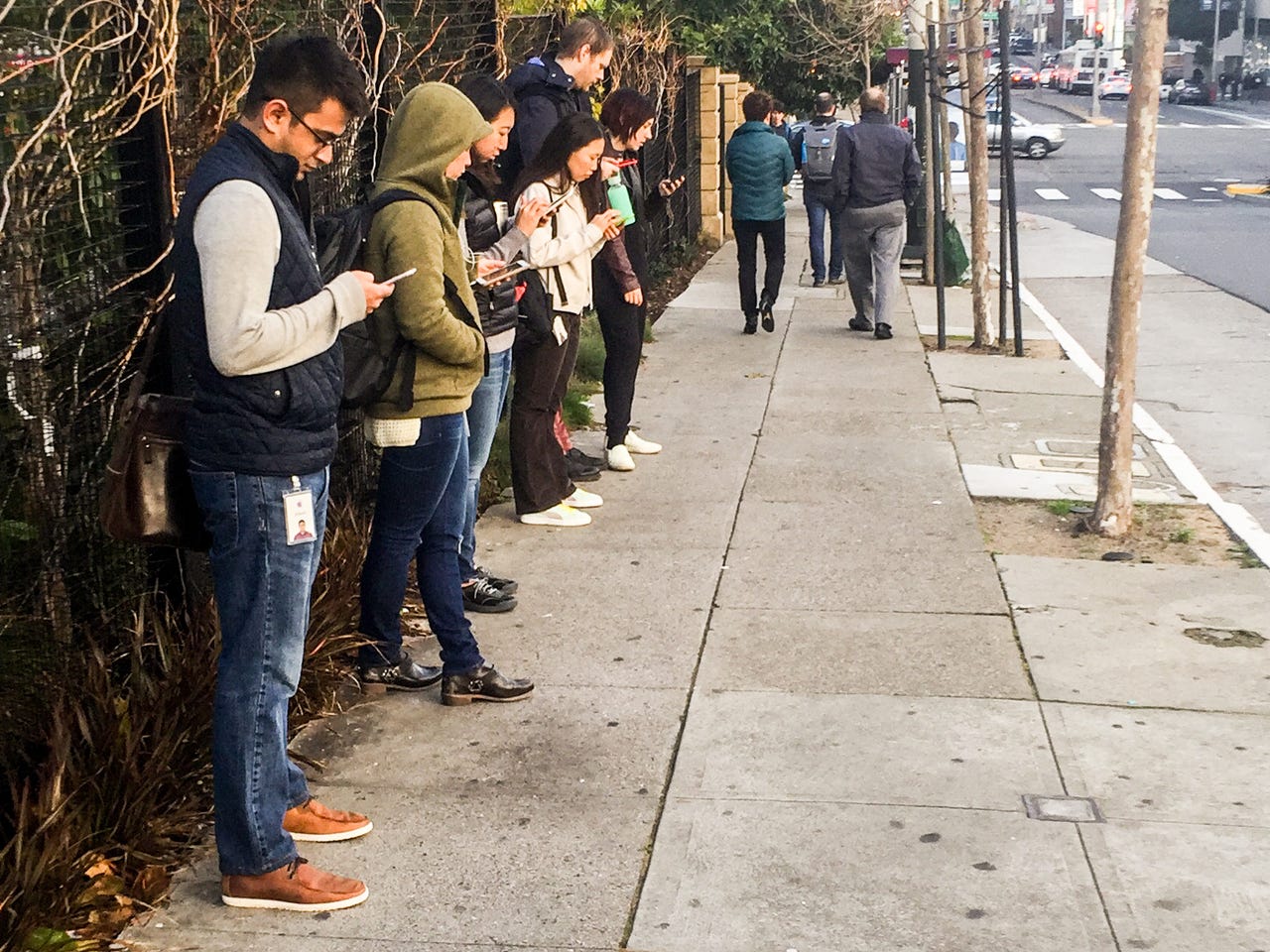Designing the future: Silicon Valley struggles with diversity and inclusivity


Tech workers in San Francisco waiting for their private bus.
The Atlantic magazine came to Silicon Valley with an ambitious event designed to help improve diversity.
At Inclusion in Silicon Valley: An Atlantic Workshop, we will explore how a community defining the country's future can find a way for all to feel a sense of belonging.
Unfortunately, I couldn't make the event but I agree with its goals. Let's make inclusive communities.
In San Francisco, for example, the tech community is segregated from its neighbors by separate buses, fed in remote office enclaves, and small business services such as cleaning apartments, and even haircuts are provided by their employer not local businesses. They are strangers in their own neighborhoods.
San Francisco should integrate not segregate its communities. I have a proposal: San Francisco should insist on all the big tech companies that operate fleets of private buses to let their staff work one day a week telecommuting. We've got so many cloud and collaboration services with videoconferencing etc, that telecommuting should be part of the discussion about the private buses.
Dell MD: Diverse, inclusive workplaces deliver stronger business results | Want tech diversity? Think information systems majors over computer science | The limits of data science in building diversity in the workplace | Women in technology: Advice from Intel and Biogen
One day a week telecommuting gets rid of a lot of traffic. That way the tech workers will become better known in their community. They'll sit in local cafes, lunch locally and meet the locals.
There would be far less animosity if people knew it was "Joe" or "Jane" sitting in that Google bus.
By integrating the tech community we are bound to see new solutions, new ideas for apps will arise. Engineers love to solve problems but they have to see the problem to solve it.
By being better integrated into the daily lives of everyday people I'm positive some of these software engineers will come up with an app to help the helpless, or an app to help people help others, or whatever is needed.
Our tech communities will come up with solutions for urban problems only when they are integrated with every day urban struggles every one experiences.
But if their day is frictionless, their employer's bus is always on time, the wifi never drops, the lunch is always good, their day is the same day every day painless and familiar. Not too many original ideas will spring from that day.
Innovation grows from adversity and is accelerated by diversity.
Diverse teams...
Building diverse teams is important and tech companies have received a lot of criticism for their homogenous look. But critics must also realize that companies can't hire based on qualities of diversity, they must hire based on qualifications and ability -- it's the law. If the applicant pool isn't diverse then there's not much startups can do.
However, that's not strictly true.
I like the approach taken by Seattle based startup Outreach, which offers sales team productivity tools, in its efforts to improve diversity.
I spoke with Manuel Medina, CEO and founder of Outreach, he recently announced a very progressive (very generous) parental leave program that helps women raise a family and also raise their career to new levels by making sure they can get back into their career.
"Women are at a disadvantage in the workplace if they also want to raise a family. We just introduced a parental leave program for both parents, with lots of time off and a gradual return to work. We believe this will help us retain our people and also attract new talent."
Medina says that he is planning further diversity initiatives but he points out that it is important to introduce them as early as possible into the organization.
"I'm an immigrant, originally from Ecuador so I know the value of having diversity in the workplace. But diversity has to be baked into the culture of an organization from the beginning. You can't just add it later."
"Here's why it's important to have your startup team be as diverse as possible. Around 30 per cent of new hires come from staff referrals. If you start your business with a diverse team you will benefit from a multiplier effect as the business grows. And we are growing very fast."
Good points. I've noticed how company culture is nearly impossible to change once it's in place. I also see large companies adding diversity programs of various kinds but that also advertises the lack of a fundamental culture of inclusivity within the founding DNA of the organization. It's not a good sign.
I'll be curious to see how things turn out for Outreach in 2017 in a competitive jobs market.
And I wish The Atlantic good luck in its efforts to "explore what is required to create a Silicon Valley that expands opportunity for everyone in its powerful orbit." Here's more information about the event.